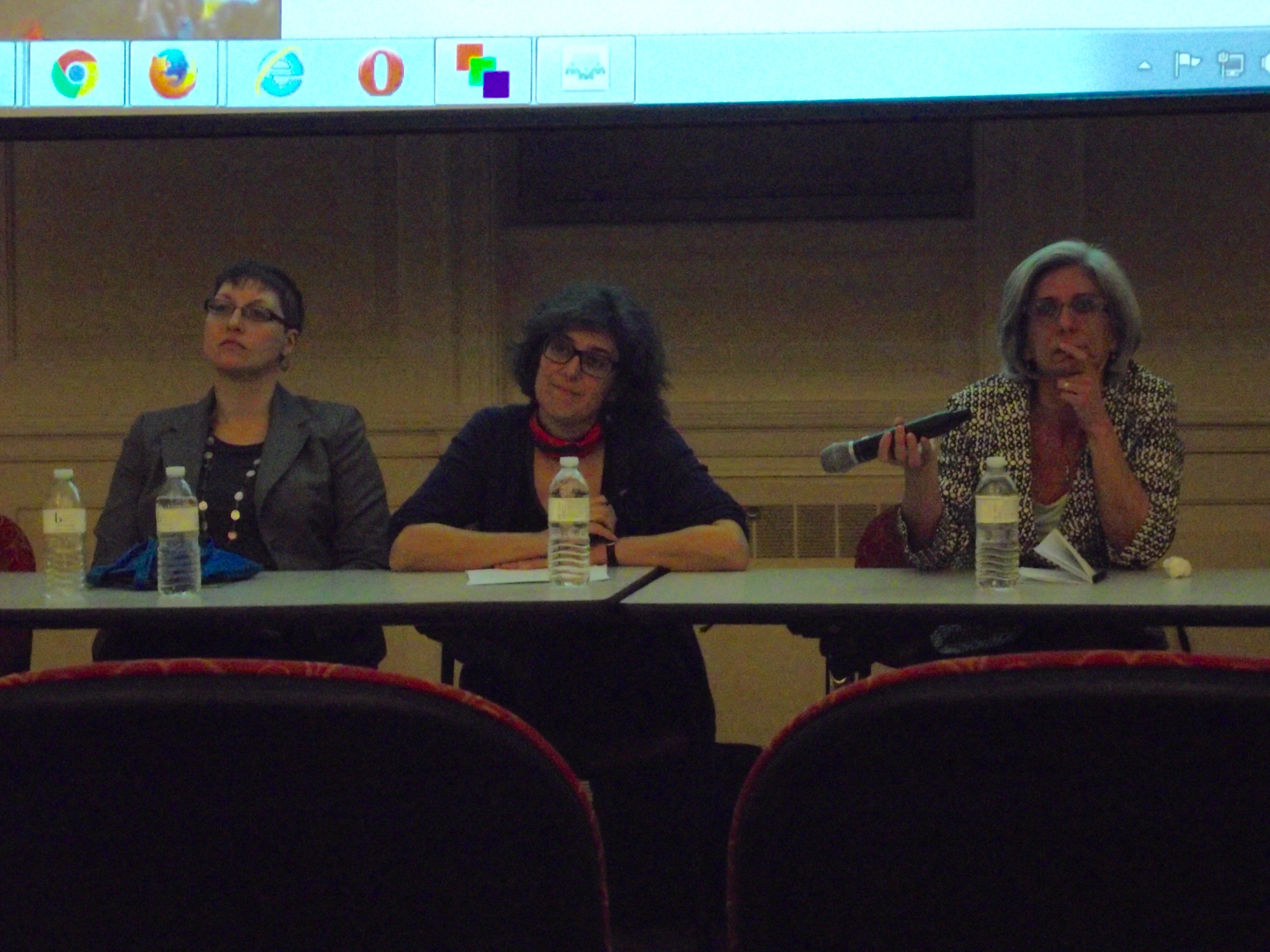By Savannah Williams
For The Diamondback
Denise Meringolo, public history director at the University of Maryland, Baltimore County, summed up this year’s annual Student Archivists at Maryland symposium Monday night in one sentence.
“There is no such thing as a collection that doesn’t have its own history,” she said.
The symposium, called Americana 2016: Archival Activism and Social Justice, drew a crowd of about 40 students and alumni to McKeldin Library to examine and address the role that archivists play in social justice.
Joseph Carrano, Student Archivists at Maryland president, said the symposium’s goal was to show others the importance of archivists’ work and the social impact it can have.
“We were trying to bring attention to things that are happening right now — a lot of social justice movements — and trying to change the conversation around archives,” Carrano said. “A lot of people are having this conversation, but a lot of people in the profession still take archives to be something that comes to you once people die, or once an organization is gone.”
Brian Butler, the interim dean of the university’s iSchool, gave opening remarks at the symposium and said archivists have a difficult job of collecting information while keeping future generations in mind — an audience they cannot directly reach. Archivists have to decide what future historians will want to know, he said.
“Very simply, decisions you make today affect what is possible to know tomorrow,” Butler said. “That’s an incredibly powerful, but usually unrecognized, position.”
Katharina Hering, a project archivist for the National Equal Justice Library in the Georgetown Law Library, spoke and expanded on Butler’s point by emphasizing the roles archivists play in seeking out all voices in the modern world, including those marginalized from the Internet with poverty.
“When reflecting about archival activism, as these projects proliferate, we do have to think about digital inequality,” Hering said.
Diane Travis, an iSchool doctoral student, transitioned the focus from the impoverished to racial inequality. She said she is working on a project that examines Tule Lake, a World War II Japanese-American internment camp. Her team built an interactive map of the camp that survivors can contribute material to in order to keep its history alive.
Meringolo brought the discussion of political archiving from World War II to the present. Following the death of Freddie Gray in Baltimore last year, Meringolo said the image of Baltimore changed.
“There were riots, there was property damage and there was a media story that was being spun,” she said.
She said her students “knew they needed to do something,” and have since collaborated with people in Baltimore to create a digital platform for posting photographs and stories about the uprising. Meringolo said the website, baltimoreuprising2015.org, has more than 1,900 items that pertain to the event.
Sara Horn, a library science graduate student specializing in archives and digital curation, came to the event and praised the interactive map idea, and said she was inspired by the other projects.
“I didn’t know a lot of these projects, and I was very excited to hear [about them] because I feel that it’s important for community members to be involved in different projects — especially the Baltimore uprising one,” Horn said.
The Student Archivists at Maryland also awarded the Distinguished Archives Alumni Award to David McCartney, who is currently the university archivist at the University of Iowa, where he focuses on representing diverse and underrepresented campus communities.



